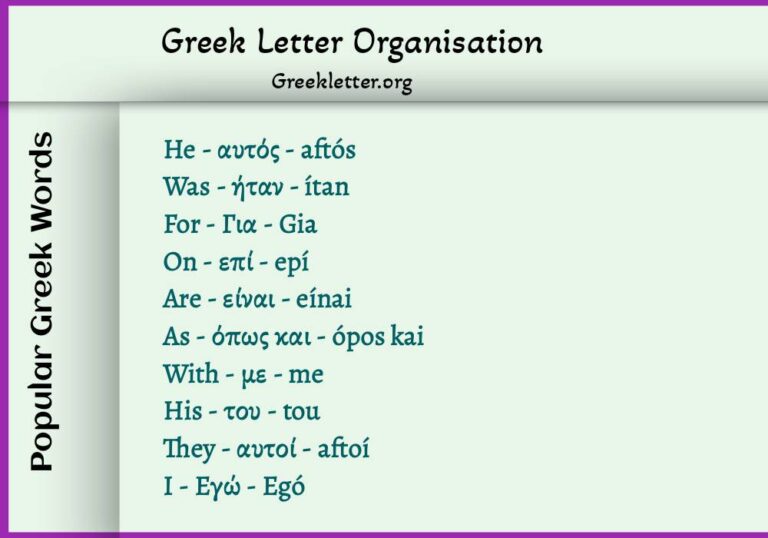International Greek language Day 2024: Big News
Big News! International Greek Language Day is back for another year; this time, it’s bigger and better than ever. This year’s event will take place on February 9, 2024, featuring various fun activities and events designed to help people learn more about the Greek language and culture.
There’s something in store for everyone, so note the date on your calendar and join us for a day filled with learning and enjoyment!
If you want to learn the Greek language, there’s no better resource than the Greeketter.org. With our help, you’ll be able to quickly and easily pick up the basics of this beautiful language. Soon, you’ll read, write, and speak like a native!
Why Do We Celebrate International Greek Language Day?
International Greek Language Day is today, celebrating one of the world’s oldest languages. Greek has been spoken for over 4,000 years and is the official language of Greece. It is also one of the official languages of the European Union.
Greek is a beautiful language with a rich history. It has influenced many other languages, including English. Words like “philosophy” and “democracy” come from Greek.
Greek literature is some of the finest in the world. The works of Homer, Sophocles, and Aristotle are just a few of the great Greek authors.
So why do we celebrate International Greek Language Day? To celebrate this beautiful language and its contributions to our world.
How the Greek Language Has Influenced Other Languages
The Greek language has profoundly impacted other languages, both in terms of vocabulary and grammar. It is one of the oldest Indo-European languages, with a recorded history of over 4000 years.
The Greek language has been used on the Balkan Peninsula since the Bronze Age. The first written evidence of Greek dates back to 1450 BC, making it one of the oldest written languages in the world. Greek was an official Roman Empire language and widely spoken throughout the Mediterranean region.
During the Middle Ages, Greek was used as a lingua franca in the Eastern Mediterranean. It continued to be spoken by educated Greeks during Ottoman rule.
In addition to Modern Greek, numerous dialects and regional variations of Greek are still spoken today. The influence of Greek can be seen in many modern languages.
What is the history behind International Greek Language Day?
On February 9, 1825, Dionysios Solomos wrote the words to what would become the Greek national anthem. Inspired by the Greek War of Independence, the poem quickly became popular throughout Greece.
In recognition of this important work, the Greek government established International Greek Language Day on February 9. This holiday celebrates the beauty and importance of the Greek language.
Dionysios Solomos was born on the island of Zakynthos in 1798. He moved to Messolonghi in 1824, where he wrote his famous poem.
The poem was originally written in Demotic Greek but later translated into Katharevousa, the formal version of the Greek language used during Solomos’ time.
Dionysios Solomos: The Man Who Wrote Greece’s National Anthem
Dionysios Solomos was born on April 8, 1798, on the island of Zakynthos. He is best known for writing Greece’s national anthem, “Hymn to Liberty.” Solomon was educated at the Ionian Academy and studied law at the University of Naples.
Solomos began writing poetry at a young age and was influenced by the Italian poet Dante Alighieri. He also wrote plays and prose. In 1823, he published his first collection of poems, “Odes.”
Solomos’ most famous work is “Hymn to Liberty,” which he wrote in 1828. The poem reflects Solomos’ support for the Greek War of Independence, which began in 1821. The poem became Greece’s national anthem in 1865.
How International Greek Language Day Began
The Greek language has been around for over three thousand years and is one of the oldest Indo-European languages. Approximately 13 million people speak it in Greece, Cyprus, Italy, Albania, and Turkey. Greek is recognized as an official language of the European Union. International Greek Language Day is also observed on February 9th in honor of Constantine Cavafy’s birth.
Cavafy was a renowned Greek poet who wrote in both English and Greek. He is considered one of the most important figures in Modernist poetry.
The day was first celebrated unofficially in 2011 by the Association of Teachers of Modern Greek (ATEI) in Athens. ATEI chose February 9 for International Greek Language Day because it is Dionysios Solomos’s death anniversary.
Why We Support International Greek Language Day
As the number of Greek-speaking people worldwide dwindles, celebrating and supporting International Greek Language Day on February 9 is more important than ever.
This date has been set aside to honor the Greek language, one of the oldest, dating back over 4,000 years. It is a day to remember Greece’s contributions to both European and world culture.
There are many reasons why we should support International Greek Language Day. For one, the Greek language is a critical part of our shared history and heritage.
It was the language of Homer, Plato, Aristotle, and Socrates – some of the most influential thinkers in Western civilization. Additionally, Modern Greek is spoken by approximately 13 million people worldwide, making it an important language for business and diplomacy.
Finally, supporting International Greek Language Day helps to promote linguistic diversity and preserve endangered languages.
How long does it take to learn Modern Greek?
It can take years to become fluent in a language, but how long does it take to learn the basics of Modern Greek? It could take a few weeks or months, depending on your learning method.
The average adult can expect to spend about 600 hours studying Greek to achieve proficiency. This number can be broken down into several different categories:
- 150 hours spent on learning the alphabet and basic grammar
- 200 hours spent on conversation and practice
- 250 hours spent on reading and writing
Of course, the amount of time it takes to learn Greek also depends on your level of commitment and how much time you’re willing to dedicate to studying. If you plan to take a trip to Greece soon, start studying now!
Is the Greek language dying out?
The Greek language is one of the oldest languages in the world. It is spoken by approximately 13 million people worldwide.
However, the number of people speaking Greek as their first language is declining. This is due to various factors, such as emigration and the assimilation of Greek speakers into other cultures.
The decline of the Greek language has been happening for many years. The number of people speaking Greek as their first language has steadily declined in Greece since the early 1990s.
The trend is similar in other countries where Greek is spoken, such as Cyprus, Australia, and the United States. While many people still speak Greek as their first language, the number is steadily declining.
The decline of the Greek language is a cause for concern for many people. The loss of any language is a loss for humanity as a whole.
Conclusion Points
International Greek Language Day is a big event that happens every year. It celebrates the Greek language and its importance in the world.
In conclusion, Greekletter.org is a great place to visit for International Greek Language Day 2024. The site has a lot of helpful information and resources for those learning or interested in the Greek language. Be sure to check it out and comment to let us know what you think!
FAQs
1. What is International Greek Language Day?
International Greek Language Day celebrates the Greek language and its significant contribution to world literature, culture, and history.
2. When is International Greek Language Day celebrated?
International Greek Language Day is indeed celebrated on February 9th each year.
3. Why was February 9th chosen as International Greek Language Day?
February 9th was chosen as International Greek Language Day to honor the feast day of Saint Cyril, one of the two Byzantine brothers who created the Cyrillic alphabet and significantly contributed to preserving and spreading the Greek language.
4. Who celebrates International Greek Language Day?
People from all around the world who have an interest in or are passionate about the Greek language celebrate International Greek Language Day. It is particularly celebrated by Greeks in Greece and diaspora communities worldwide.
5. How can I participate in International Greek Language Day?
You can participate in International Greek Language Day by organizing or attending events that promote the Greek language, such as poetry readings, language workshops, and cultural exhibitions, or simply by sharing your love for the language through social media using relevant hashtags.
6. Are there any specific activities associated with International Greek Language Day?
Various activities occur today, including lectures on famous Greek literary works, competitions testing participants’ knowledge of ancient or modern Greek, theatrical performances featuring plays written by renowned Greek playwrights, and more.
7. Is it necessary to know how to speak or understand Greek to celebrate this day?
While knowing the Greek language certainly enhances your ability to fully appreciate this day’s significance and participate actively in related events, it is not a requirement. Anyone can join in celebrating by learning a few basic phrases or exploring translations of renowned works of literature into their native languages.
8. How can I learn more about the history and importance of the Greek language?
To learn more about the history and importance of the Greek language, you can read books or articles on Greek linguistics and literature, enroll in online courses or language schools that offer Greek language classes, join cultural organizations dedicated to promoting the Greek language, or even visit Greece and immerse yourself in the country’s rich linguistic heritage.






